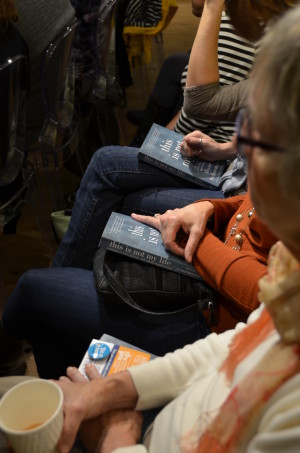Communities make systems change
 All of the calls to action already mentioned in the previous blog posts (humanizing people in prison & advocating for programs that work) help to create and strengthen system change in big and small ways. The work of larger structural change is long term, often slow work: Not for the faint of heart, but everyone can still play a role.
All of the calls to action already mentioned in the previous blog posts (humanizing people in prison & advocating for programs that work) help to create and strengthen system change in big and small ways. The work of larger structural change is long term, often slow work: Not for the faint of heart, but everyone can still play a role.
Here are a few ways you or your friends can contribute toward society and system changes.
- Male Allies Against Sexual Violence – Through public education, the Male Allies program invites men and boys to be leaders in the work of ending gender-based violence. Their goal is to encourage critical introspection in men and boys, which begins by helping them to understand gender-based violence as a men’s issue. Over the past eight years, they have offered hundreds of workshops to thousands of men and boys and have just started a ground-breaking training initiative with the Ontario Hockey League.
- Learn more about the root causes of crime. In order to prevent something, it’s important to understand the contributing factors. As a community, we have the responsibility to address these conditions which hinder healthy development and can lead to criminal behaviour.
- Learn more about Smart on Crime approaches to addressing crime. Everyone has heard about tough on crime, but what about Smart on Crime? As a community, we can use language that shows we can build a community that is safe and vibrant for all people living in Waterloo Region.
- Work with and support organizations that address violence against women. Women’s Crisis Services of Waterloo Region and the Sexual Assault Support Centre of Waterloo Region both provide direct services to women and children that have experienced violence and they do a great deal of community programming to raise awareness and reduce incidents of violence in our community.
- Follow the advocacy work of Howard Sapers – Until recently, Howard Sapers was the Correctional Investigator of Canada responsible for the investigation of individual and systemic concerns. He was also a guest for a 2015 Friends of Crime Prevention event. On November 8, the Ontario Government appointed Mr. Sapers to be an independent advisor on corrections reform and to provide advice to the government on the use of segregation and ways to improve the province’s adult corrections system.
When we have people and community organizations working at all three areas of action to humanize people in prison and reduce stigma for loved ones, advocate for programs that work and enter into deeper levels of system and societal change, we can move the needle on progressive change.
If you decide to take some action, we would love to hear about it – 6 weeks from now, or 6 months from now! Get in touch with Juanita Metzger to share your story.
